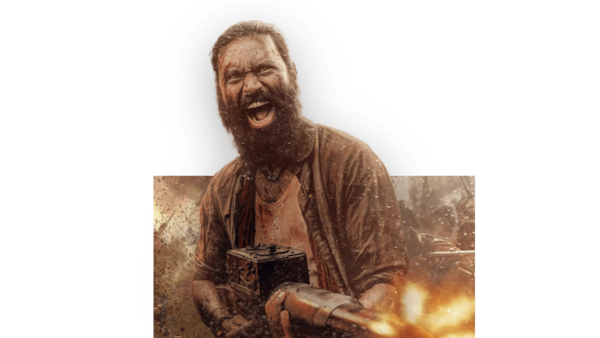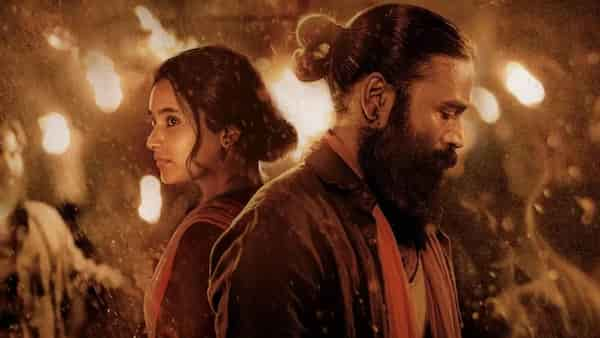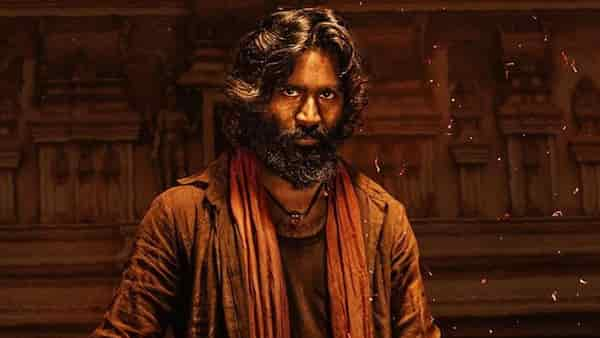Captain Miller: Arun Matheswaran's Film Is In A Rush to Get To The Finish Line
Dhanush tries valiantly in a film where only his role is substantial enough to give a credible performance.

Last Updated: 01.43 PM, Jan 13, 2024
THE Tamil Eelam and Sri Lanka cast a long shadow in Arun Matheswaran’s works. He’s made only three films, but his debut Rocky had characters with roots in Tamil Eelam, and Dhanushkodi was a prominent location. The coastal ghost town is mentioned and briefly visited in his new film Captain Miller, starring Dhanush in the titular role. Miller — a quickly disillusioned Indian soldier under the British in pre-Independence India, who turns part-time dacoit, part-time mercenary — at one point gives it all up and decides to go to Ceylon. There isn’t a larger point to this.
Of course, Captain Miller was a real person — Vallipuram Vasanthan, and Liberation Tigers of Tamil Eelam or LTTE’s first Black Tiger. Is that simply an alternate history and an alternate movie, albeit in a different period? There is even a mention of the Indian freedom movement needing “tigers”. The casteism and systemic oppression of the puppet Tamil feudal family combined with colonialism means that the situation in Miller aka Analeesan’s (Easan) village is just as grim and bleak. The prologue (as is the norm in his films, Arun divides the film into chapters with curious titles) talks about the myth of the local deity Koranaaru (and Ravanan is briefly invoked as well).
Quick or snap are the words one could associate with Arun’s new film. Captain Miller — also written by him — is in a hurry to get from one point to another and there is hardly any breathing space to take in a dense history of people. While the story and dialogues suggest that this village is special and the people’s narrative is something we must pay attention to, the next set piece arrives even as we are digesting all the folk history and allusions thrown at us. It’s not rocket science, we do “get” everything, the story of this village that could be the story of several Tamil Eelam villages massacred by the state. But the film is an onslaught.

Easan and Velmathi (Priyanka Mohan) meet, and a pair of mirroring scenes deliver us a dynamic that will reap dividends later. Easan talks logic with his freedom fighter brother Sengolan (Shiva Rajkumar) and joins the army. One ghastly incident (Arun loves to frame his protagonists against flaming embers) and he is out of it. He is banished from the village and the film offers us no temporal breadcrumbs before he is a dacoit working for a gang led by Kannaiya (Elango Kumaravel). We then get the big pre-interval set piece, an assault on a British cavalcade that’s cut so quickly that it has no sense of space or sound. GV Prakash Kumar fills the scene with a score that ejects us out of the scene. The quick cuts have already taken spatial coherence out of the equation and with the music we don’t get a sense of the shooting and the banging. Where is the sound of the bike, the trucks and people moving down a steep hill?
Captain Miller is forever in a rush to get to the hurried action set pieces. The haste creeps over even in scenes where there is just talking. Arun opts for these handheld shots, the frame shaking as two people are walking and talking. It can be disorienting, and it often is; once again, the editing rhythm is not in line with the beats of the story. It’s as if Arun wants to try every trick — the handheld shots, the breakneck action, random monochrome inserts to begin chapters — and see what sticks. Ultimately nothing does, even with the subject so enticing — a political action drama imagined as a Western with quirky but distinctly Tamil cinema aesthetics. When Arun dealt with a limited number of characters and not on an epic scale, we at least got a partly working Saani Kaayidham. Compared to his first two films, the violence is heavily pulled down. The visceral, gutting violence of those films added a layer to the characters that go missing here.

Dhanush tries valiantly in a film where only his role is substantial enough to give a credible performance. There isn’t another actor in Tamil cinema whose face has yearned, longed, cried and ached for a parent this often in his career. He’s got the Tamil action hero strut down pat, but he is at his best in the ‘Koranaaru’ song dancing with his brother and looking on at his uncharacteristically jubilant mother. His face speaks things he cannot say and as the neglected and lesser loved child, it is the face of a man professing a bittersweet emotion, one who has been waiting long to see this joy on the woman’s face.

 Premium
Premium